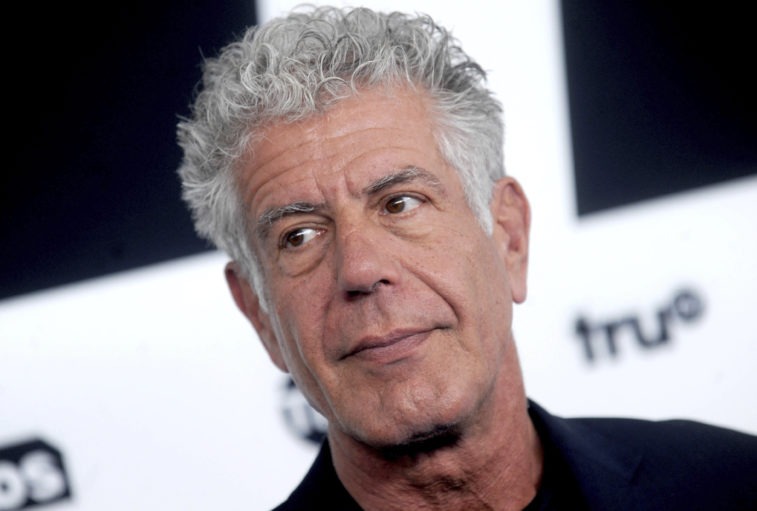The recent deaths of fashion designer Kate Spade and CNN’s Anthony Bourdain show how depression and suicide can afflict even the well-off and famous. And such tragedies sometimes trigger negative thoughts in people who don’t even know them, said Kathleen Lemme, L.P.C.-M.H., an integrated health therapist at Sanford Health Psychiatry and Psychology Clinic in Sioux Falls, South Dakota, who offers the following advice if you or someone you know is struggling.
‘No respecter of socioeconomics’
The suicide of anyone, such as a famous person, can have an impact on people. Even if they didn’t know them personally, it can still trigger strong emotions and questions.
If you find yourself feeling depressed or anxious, you need to talk to someone about it. It’s not uncommon for people to feel some emotion and stress within themselves because these were famous, rich people. Suicide can happen to anyone. It’s no respecter of socioeconomics or race or anything.
When it is a family member, usually there’s stigma involved because the family feels as though they should have recognized some signs, they blame themselves for not doing more. But sometimes there’s just nothing they could have done differently, so they should not blame themselves. They start isolating themselves because other people don’t know how to interact with them so they avoid them. It can tear families apart or bring them closer together.
Signs of trouble
Sometimes there are signs that the person may be thinking about it. For instance, giving things away, moving away, isolating themselves from friends and family. Then you have a lack of support systems, whether voluntarily or involuntarily. Some of these suicides can be drug or alcohol induced.
Then we also see with persons who commit suicide that they may appear happier before they do take their own life because they don’t need to struggle with whatever they’re dealing with: problems, depression, financial issues, job, stress, whatever. Sometimes the person seems very happy. It’s hard a lot of times to recognize that a person is going to follow through with it because they appear happier.
Stages of grief
A really good resource for anyone impacted by a suicide is Elisabeth Kubler-Ross’s five-stage grief model about death and dying, which people can move back and forth in and don’t necessarily go through in order. Any one of these stages is a good time to seek out a mental health professional:
1. Denial
A lot of times people are in shock. They can’t believe that person is gone. They don’t want to accept it. They want to ignore it. When they start moving on, like after the funeral, then some times they experience anger.
2. Anger
People are often angry with the person for taking their own life and angry at themselves for not helping that person or supporting that person or recognizing the signs.
3. Bargaining
Then there’s bargaining: shoulda, coulda, woulda. “If I would have done this. If I would have talked to them more or visited them more.”
4. Depression
Depression is when it starts hitting you. You feel overwhelmed, hostility.
5. Acceptance
This is when you start moving on.
Resources
There are many resources that people can turn to. If someone is actively suicidal, for instance, then you should call 911 or have a family member take them to the closest emergency room or get an assessment with a behavioral health professional. There is also 988 and numerous local and national hotlines available online that immediately provide someone to talk to.
For survivors of suicide, there are groups that are facilitated by professionals. A lot of times people will need individual or couples or family counseling. There are also a lot of articles online and books geared toward loss.
People may also need to see a medical doctor or psychiatrist for antidepressants or anxiety medications. It’s been shown that therapy and medication together is the most productive way to help people.
Don’t delay
For people struggling with thoughts of self harm or for those people around them, the best advice is to do something sooner rather than later. They should reach out for help. Or if you see somebody struggling, ask what you can do to help or connect them with appropriate resources.
And like with Kate Spade and Anthony Bourdain, the suicide of a stranger can have a profound effect on people. You think everything’s going great for them. They’ve got all the money in the world and they’re famous.
But it can trigger strong questions and emotions. Some people who may have been big fans of one or the other might need to seek help because they are finding out that they’re shocked and getting depressed or anxious because they’re confused. Healing is a process and takes time. And it’s best to seek treatment from a professional if you’re feeling some physical, psychological or emotional negative feelings.
Learn more
…
Posted In Behavioral Health, Health Information, Healthy Living
